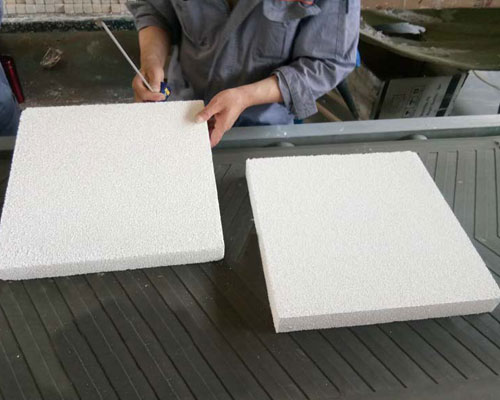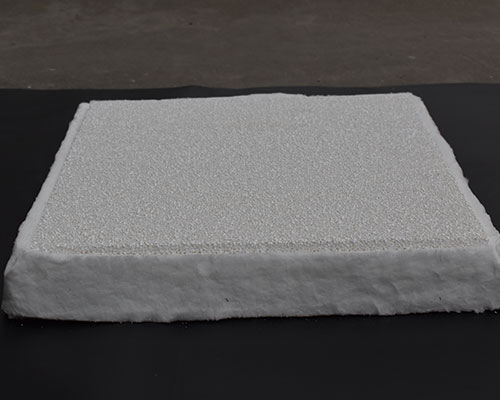Ceramic Filter For Casting Filtration can effectively remove large inclusions in molten aluminum, absorb micro inclusions in particles, improve surface quality, improve product performance, microstructure, and increase output. They are widely used in aluminum alloy casting And other production areas.
Alumina ceramic foam filter is a new type of filter with low density, high porosity and a three-dimensional network framework structure.
And it is widely used in the aluminum processing industry to filter molten aluminum, thereby improving the quality of aluminum.
The alumina ceramic foam filter can effectively remove the non-metallic solid mixture in the aluminum and aluminum alloy melt, reduce the trapped gas, and provide laminar flow, so that the filtered metal is obviously clean.
Clean metal can improve the quality of castings, reduce scrap, reduce inclusion defects, improve the quality of aluminum alloy and other non-ferrous alloy castings, and reduce casting costs.
Due to its interconnected three-dimensional structure, the ceramic foam filter can fully reflect its four filtering mechanisms when filtering molten metal: rectification, mechanical sieving, “filter cake” and adsorption.
At the same time, the filter material has good chemical stability and does not react with the alloy liquid, thereby effectively removing or reducing the inclusions in the molten metal and improving the purity of the molten metal.
The surface of the cast metal casting is smooth, the strength is improved, the scrap rate is reduced, and the processing loss is reduced, thereby reducing energy consumption, improving labor productivity, and reducing costs.

Ceramic Filter For Casting Filtration is mainly used in foundries to filter aluminum and aluminum alloys.
It can effectively remove inclusions, reduce trapped gas, and provide laminar flow when aluminum liquid is filtered.
Alumina ceramic foam filter is a new type of molten metal filter developed in recent years to reduce casting defects.
Foam ceramics have the characteristics of light weight, high mechanical strength, large specific surface area, high porosity, good thermal shock resistance, chemical resistance, and high temperature stability in molten metal.
The network structure with distributed pores can increase the specific surface area and absorb the sintered ore to make the liquid metal more pure, greatly reduce the quality of wastes such as sand holes and pores, and greatly improve the quality of castings.
It is made of impregnated foam in a controlled open pore structure, providing superior filtering effect. We provide an effective solution to remove oxides and non-metallic particles from a wide range of non-ferrous metals.
Advantages Ceramic Filter For Casting Filtration
*Increase liquidity
Removal of inclusions makes the metal more fluid, so that the mold is easier to fill, the casting structure is better, and the thin-wall casting performance is better
*Reduce mold wear
Remove inclusions and other non-metallic fragments from the melt, reduce mold welding and mold-metal interaction, thereby reducing mold surface and service life
*longevity
Oxide and intermetallic compound inclusions can form “hard spots” that can damage tools during machining and finishing. Filtering reduces tool wear and improves productivity.

